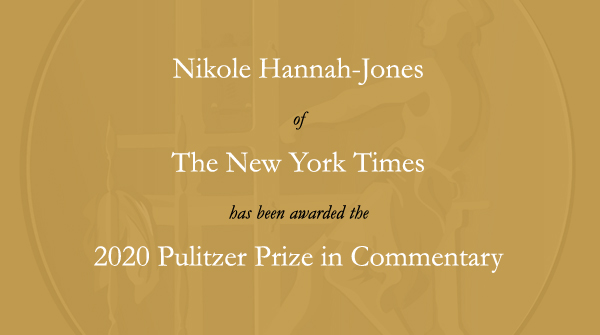History prof debunked central claim in Pulitzer-winning New York Times essay
- A Northwestern history professor called into question the historical accuracy of a New York Times Magazine essay.
- The essay, which claimed that American colonists sought independence from Great Britain to maintain the institution of slavery, won a Pulitzer Prize Monday.
A Northwestern University history professor called into question the accuracy of a New York Times Magazine essay that won a Pulitzer Prize.
The Pulitzer Prize Board announced Monday that Nikole Hannah-Jones had won a Pulitzer Prize for her essay published as part of the New York Times Magazine's 1619 Project, in which she made the claim that American colonists sought independence from Great Britain because “they wanted to protect the institution of slavery in the colonies.”
Congratulations to @nhannahjones of @nytimes. #Pulitzerpic.twitter.com/ToOmaB8ZI8— The Pulitzer Prizes (@PulitzerPrizes) May 4, 2020
But as Campus Reform previously reported, Hannah-Jones asked Northwestern University history professor Leslie Harris to fact check the essay before it was published and, according to Harris, she flagged the portion of the essay claiming that American colonists' motivation in claiming independence was to maintain the institution of slavery.
Harris noted that while that may have been one of the factors that led to the Revolutionary War, it was not the primary determinant.
Despite the historian's concern, however, the New York Times and Hannah-Jones published the essay anyway. On Monday, it won a Pulitzer.
[RELATED: Young capitalist completely torches prof's attempt to link capitalism to slavery]
Media Research Center's TechWatch Vice President Dan Gainor previously told Campus Reform, “The New York Times 1619 Project wasn’t about history, it was about rewriting history."
"Journalism doesn’t really deliver news now; it delivers narrative. To the Left elite like The Times, there’s no narrative they want to destroy more than American exceptionalism," Gainor continued. “If America had been more evil from the founding, then everything it created must be destroyed - the Founders, the Declaration of Independence, the Constitution, religious freedom, gun rights - everything Americans hold dear."
"The actual truth of American history isn’t the narrative that the Times cares to report," Gainor added.
Harris told Campus Reform Tuesday, "I agree with the New York Times's clarification, as printed on March 11, 2020."
That "clarification," however, was more of a doubling down.
"Today we are making a clarification to a passage in an essay from The 1619 Project that has sparked a great deal of online debate. The passage in question states that one primary reason the colonists fought the American Revolution was to protect the institution of slavery. This assertion has elicited criticism from some historians and support from others," the Times stated.
"We stand behind the basic point, which is that among the various motivations that drove the patriots toward independence was a concern that the British would seek or were already seeking to disrupt in various ways the entrenched system of American slavery," the paper added.
Hannah-Jones' essay, at the time of publication, still stated, "Conveniently left out of our founding mythology is the fact that one of the primary reasons some of the colonists decided to declare their independence from Britain was because they wanted to protect the institution of slavery."
That statement seems similar to the one Harris originally disputed.
"At one point, she sent me this assertion: 'One critical reason that the colonists declared their independence from Britain was because they wanted to protect the institution of slavery in the colonies, which had produced tremendous wealth. At the time there were growing calls to abolish slavery throughout the British Empire, which would have badly damaged the economies of colonies in both North and South,'" Harris wrote in her March 6 op-ed.
"I vigorously disputed the claim," Harris wrote at the time. "Although slavery was certainly an issue in the American Revolution, the protection of slavery was not one of the main reasons the 13 Colonies went to war."
The Pulitzer Prize Board did not respond in time for publication of this article.


